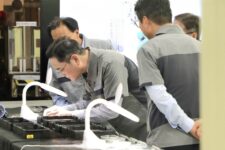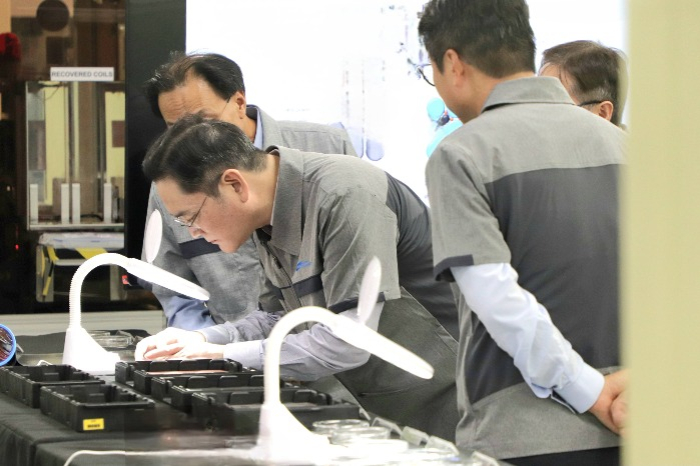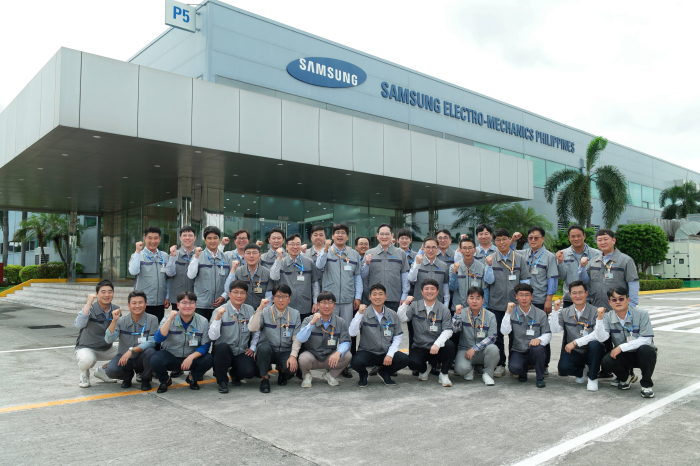
Samsung’s Lee inspects MLCC plant in Philippines as it eyes turnaround

Samsung Group Chairman Jay Y. Lee on Sunday inspected Samsung Electro-Mechanics Co.’s production facilities of multilayer ceramic capacitors (MLCCs) in the Philippines as the company is striving to take the lead in the market of automotive semiconductors in tandem with the electric vehicle and autonomous driving market expansion.
It runs two factories there, which serve as one of the company’s two overseas production bases, along with one in Tianjin, China. Its two domestic plants in Suwon, Gyeonggi Province and in Busan, South Korea’s largest port city, focus on R&D.
MLCC act as a dam that charges and discharges certain amounts of electricity to control its flow and are regarded as the rice of the electronics industry.
They are essential for the proper and stable operation of electrical and electronic circuits used in EVs and self-driving cars, as well as in smartphones and Internet of Thing.
Samsung Electro-Mechanics has been rolling out MLCCs used for advanced driver-assistance systems, anti-lock braking systems and powertains in Calamba, a city in the Philippines since 2000.
It built a second plant there in 2012 and added new production lines with the investment of 288 billion won in 2015 to nurture the MLCC business as a growth engine.

The MLCC market is projected to grow to 9.5 trillion won by 2028, more than double the 4 trillion won in 2023, according to industry observers.
About 1,000 MLCCs are embedded into an IT product, while some 3,000 to 20,000 MLCCs are installed on EVs. Automotive MLCCs are more than three times expensive.
Lee looked around the plant as part of the business delegation of South Korean President Yoo Suk Yeol’s state visit to the Southeast Asian country.
This year, Samsung Electro-Mechanics is expected to make a business turnaround after suffering a 46% plunge in operating profit in 2023 from the year prior.
The launch of the 2024 Galaxy smartphone lines by Samsung Electronnics Co., dubbed as AI phones, is making a big contribution to its sales growth.
Samsung Electro-Mechanics targets 1 trillion won ($742 million) in sales of automotive MLCCs in 2024. Comparative figures for the previous years are not available.
In 2025, it aims for 2 trillion won in sales from automotive components, including MLCCs, carmera modules and semiconductor package substrates.
Write to Chae-Yeon Kim at Why29@hankyung.com
Yeonhee Kim edited this article



